Animals
-
 Oceans
OceansStealthy robots with microphones could improve maps of ocean noise
Recordings from underwater microphones on stealthy robotic gliders could create a better “soundscape” of noises throughout the ocean, researchers say.
By Sofie Bates -
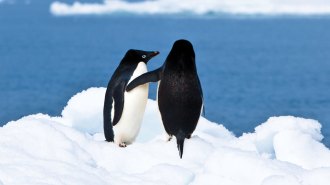 Science & Society
Science & Society‘A Polar Affair’ delves into a centurylong cover-up of penguin sex
In a new book, Lloyd Spencer Davis seeks to understand why an Antarctic explorer kept some of his penguin observations a secret.
-
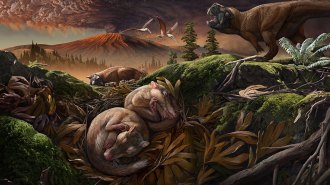 Life
LifeAn ancient critter may shed light on when mammals’ middle ear evolved
Rare skeletons are helping to pin down the evolution of mammals’ three middle ear bones, known popularly as the hammer, anvil and stirrup.
-
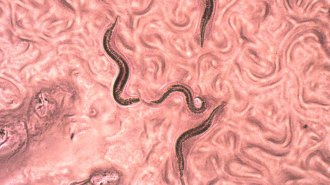 Animals
AnimalsDevil worm genes hold clues for how some animals survive extreme heat
Devil worms have many extra copies of genes tied to heat stress and cell death, which may help the critters survive deep underground, a study finds.
By Sofie Bates -
 Life
LifeCaribou migrate farther than any other known land animal
Caribou in Alaska and Canada migrate up to 1,350 kilometers round trip each year, a study reports.
By Sofie Bates -
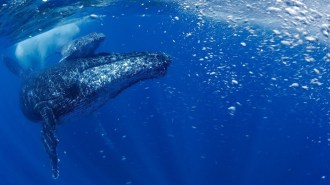 Animals
AnimalsHumpback whales in the South Atlantic have recovered from near-extinction
A new count shows the population off Brazil went from about 450 in the 1950s to some 25,000 today.
-
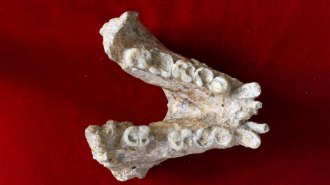 Animals
AnimalsA tooth fossil shows Gigantopithecus’ close ties to modern orangutans
Proteins from the past help clarify how an ancient Asian ape that was larger than a full-grown, modern male gorilla evolved.
By Bruce Bower -
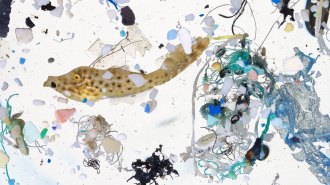 Earth
EarthPlastics outnumber baby fish 7-to-1 in some coastal nurseries
Ocean slicks serve as calm, food-rich nurseries for larval fish. A new study shows that slicks also accumulate plastics, which get eaten by baby fish.
-
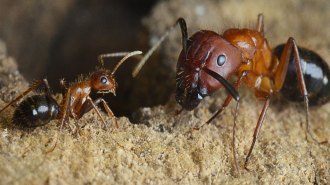 Animals
AnimalsFlipping a molecular switch can turn warrior ants into foragers
Toggling one protein soon after hatching makes Florida carpenter ants turn from fighting to hunting for food.
By Jake Buehler -
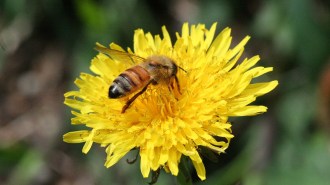 Animals
AnimalsPower lines may mess with honeybees’ behavior and ability to learn
Under power lines, honeybees might suffer neurological effects from exposure to electromagnetic fields.
-
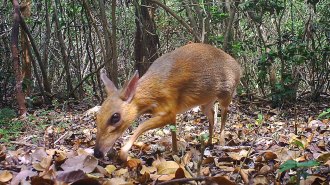 Animals
AnimalsSilver-backed chevrotains have been ‘rediscovered’ by science after 29 years
With help from Vietnamese villagers, researchers captured photos of a species of deerlike ungulate thought lost to science nearly three decades ago.
-
 Animals
AnimalsApple TV+’s ‘The Elephant Queen’ shies away from hard truths
The Elephant Queen offers an intimate look into the lives of elephants, but the documentary largely avoids threats the animals face.